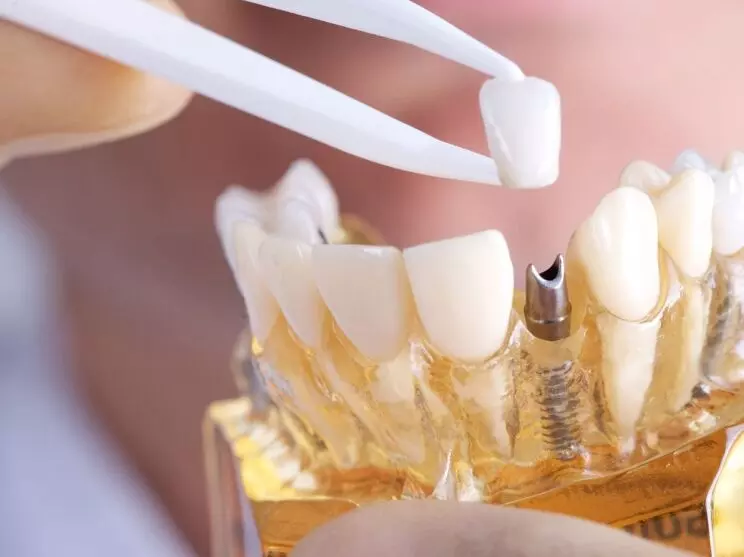PEKK emerging biomaterial for oral implants and dental prostheses: Study

Polyetherketoneketone (PEKK) can be a successful emerging biomaterial for oral implants and dental prostheses, according to a study published in the Journal of Advanced Research.
The polyetherketoneketone (PEKK) and polyetheretherketone (PEEK) are the two most well-known of the polyaryletherketone (PAEK) family. PEKK is a new evolving polymeric material.
Polyetherketoneketone is a semi-crystalline thermoplastic in the polyaryletherketone family of polymers. It possesses high heat, chemical, and mechanical load resistance.
PEKK has a glass transition temperature of 162°CPEKK biomaterials is an elastic material with good shock absorbance and fracture resistance and present ultra-high performance among all thermoplastic composites for excellent mechanical strength, chemical resistance, and high thermal stability.
A team of researchers conducted a study to present a comprehensive overview of polyetherketoneketone (PEKK) and its various applications in restorative, prosthetic, and implant dentistry highlighting its prospects for clinical applications.
Available articles on polyetherketoneketone (PEKK) for dental applications were reviewed from January 1957 to August 2020) using MEDLINE/PubMed, Web of Science, and ScienceDirect resources.
The results of the study are as follows:
· Polyetherketoneketone (PEKK) presents suitable physical, mechanical, and chemical properties for applications in prosthodontics and oral implantology.
· Polyetherketoneketone (PEKK) has good potential for a wide range of dental applications, including tooth restorations, crowns, bridge, endoposts, denture framework, implant-supported fixed prosthesis, and dental implants.
· Polyetherketoneketone (PEKK) dental implants have shown lesser stress shielding compared to titanium for dental implant applications.
· Further modifications and improving material properties can result in broader applications in the field of dentistry.
Thus, the researchers concluded that that though Polyetherketoneketone (PEKK) can potentially be a good biomaterial for oral implants and oral prostheses, long term evaluations are needed as PEKK is recently applied in dentistry, and there are limited studies published on PEKK.
Reference:
A study titled, "Polyetherketoneketone (PEKK): An emerging biomaterial for oral implants and dental prostheses" by Hatim Alqurashi et. al published in the Journal of Advanced Research.
https://doi.org/10.1016/j.jare.2020.09.004
